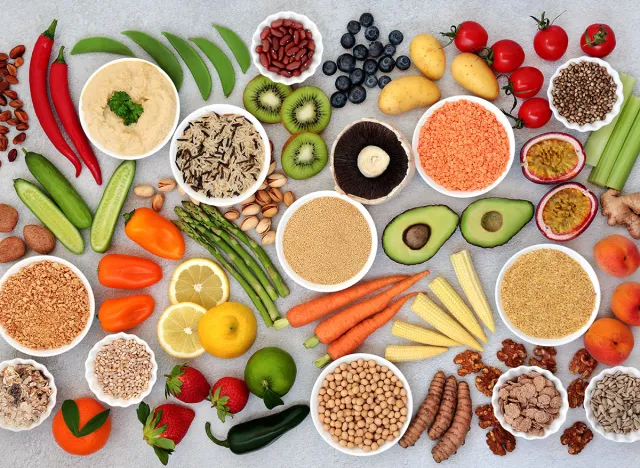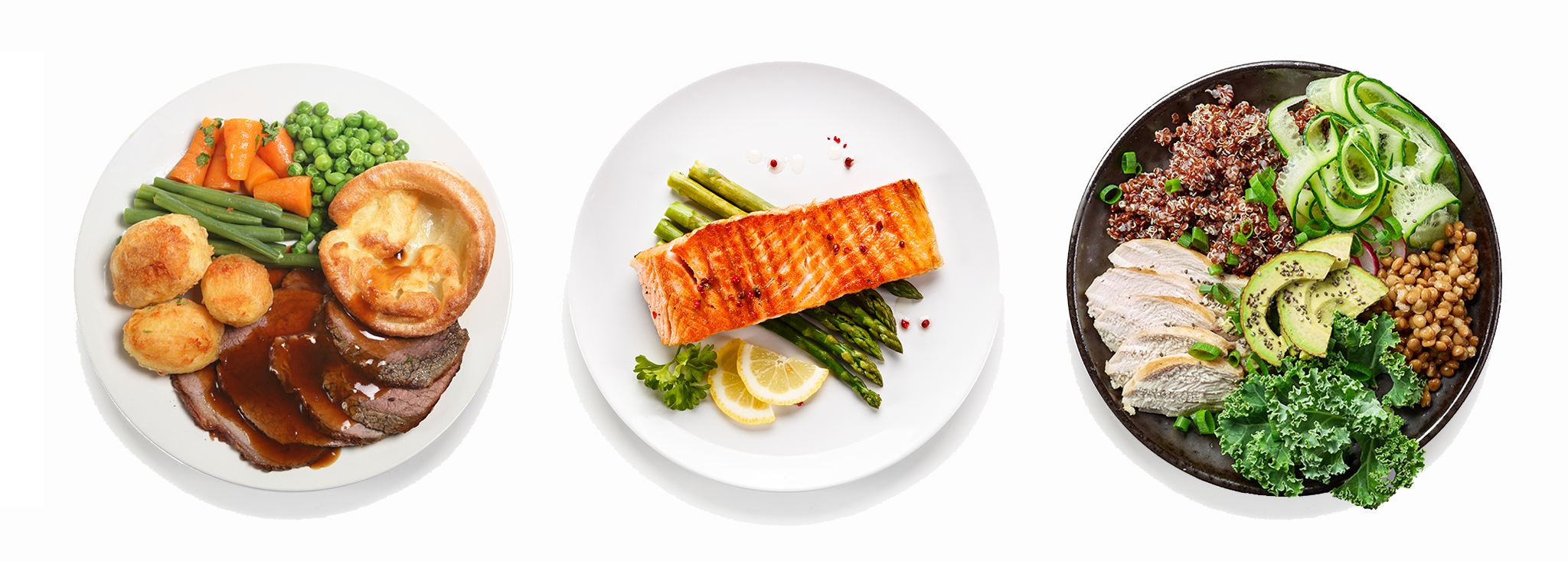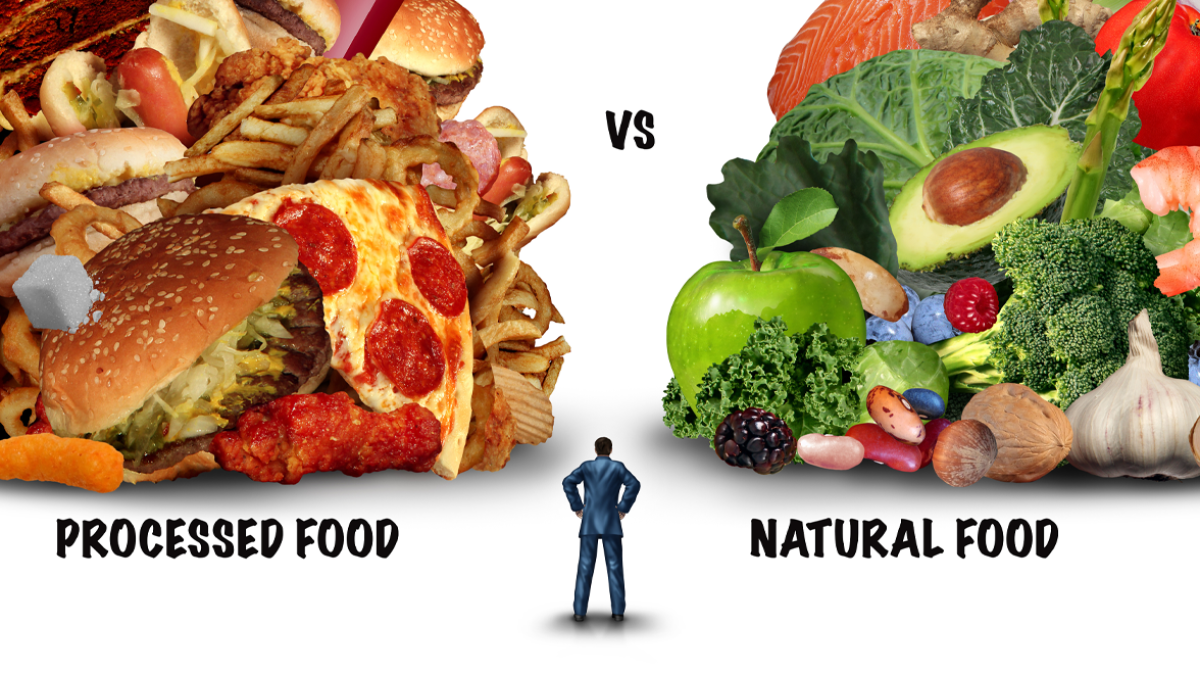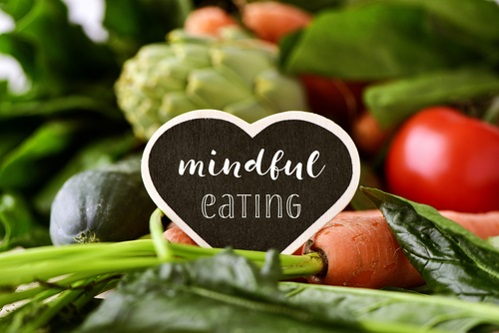Proper eating habits play a crucial role in maintaining good health and overall well-being. A well-rounded introduction encompasses a wide range of elements related to healthy eating, including the importance of a balanced diet, the benefits of consuming nutrient-rich foods, and the impact of proper eating habits on physical and mental health.
Proper eating habits involve making mindful food choices, portion control, and regular meal timings, which can help prevent chronic diseases, boost energy levels, improve digestion, enhance brain function, and support a healthy weight. By adopting and practising proper eating habits, individuals can optimize their nutrition intake and achieve optimal health outcomes.
Understanding The Impact Of Food On Your Health
Proper eating habits play a vital role in maintaining our overall well-being. The food we consume not only provides energy but also affects our physical health, mental well-being, and even our risk of developing certain diseases. In this article, we will delve into how the food we eat affects our overall well-being and the crucial role of nutrition in disease prevention.
How The Food You Eat Affects Your Overall Well-being
The food you consume can directly impact your physical and mental well-being. It serves as fuel for the body, providing the necessary nutrients for growth, repair, and optimal functioning. Making conscious choices about the types of food you eat can have a significant impact on your energy levels, mood, sleep quality, and overall vitality.
Nutrient-dense foods, such as fruits, vegetables, whole grains, lean proteins, and healthy fats, provide essential vitamins, minerals, and antioxidants that support your body’s systems. These nutrients contribute to better immune function, healthier skin, improved brain function, and enhanced digestion.
On the other hand, a diet high in processed foods, refined sugars, unhealthy fats, and artificial additives can have detrimental effects on your well-being. These foods are often low in nutrients and high in calories, leading to weight gain, increased risk of chronic diseases, and a lack of energy.
The Role Of Nutrition In Disease Prevention
Nutrition plays a critical role in preventing various diseases. By maintaining a healthy and balanced diet, you can reduce the risk of developing chronic conditions such as heart disease, type 2 diabetes, and certain types of cancer.
| Disease | Nutritional Considerations |
|---|---|
| Heart disease | Avoiding saturated and trans fats, reducing sodium intake, and incorporating omega-3 fatty acids. |
| Type 2 diabetes | Balancing carbohydrate intake, consuming fibre-rich foods, limiting sugar and refined grains. |
| Cancer | Consuming antioxidant-rich foods, including fruits, vegetables, and whole grains, and limiting processed and red meats. |
Moreover, certain nutrients and dietary factors have been associated with specific health benefits. For example, calcium and vitamin D are crucial for maintaining bone health and preventing osteoporosis. Omega-3 fatty acids have anti-inflammatory properties and are beneficial for cardiovascular health. By understanding the role of nutrition in disease prevention, you can make informed choices that support your long-term health goals.
- Ensure your diet includes a variety of whole, unprocessed foods.
- Include plenty of fruits and vegetables for essential vitamins, minerals, and fibre.
- Choose lean sources of protein such as fish, poultry, legumes, and tofu.
- Incorporate whole grains like quinoa, brown rice, and oats for sustained energy and fibre.
- Limit the intake of sugary beverages, processed snacks, and unhealthy fats.
By adopting proper eating habits and understanding the impact of food on your health, you can prioritize your overall well-being and reduce the risk of developing chronic diseases. Remember, small changes in your daily food choices can yield significant long-term benefits for your health!
Step 1: Prioritize Whole Foods

When it comes to proper eating habits, the first step is to prioritize whole foods. Whole foods are natural, unprocessed foods that are packed with nutrients and beneficial compounds. By incorporating more whole foods into your diet, you can improve your overall health and well-being.
The Benefits Of Whole Foods For Your Health
Whole foods offer a multitude of benefits for your health. Unlike processed foods, which often contain added sugars, unhealthy fats, and artificial ingredients, whole foods are nutrient-dense and provide your body with essential vitamins, minerals, and antioxidants.
Here are some key benefits of including whole foods in your diet:
- Increased nutrient intake: Whole foods are rich in essential nutrients like fibre, vitamins, and minerals that your body needs to function optimally.
- Improved digestion: Whole foods are typically high in fibre, which aids in digestion and promotes a healthy gut.
- Reduced risk of chronic diseases: Research suggests that diets rich in whole foods may lower the risk of chronic diseases such as heart disease, diabetes, and certain types of cancer.
- Maintained weight and energy levels: Whole foods are typically lower in calories and higher in nutrients, which can help you maintain a healthy weight and sustained energy levels throughout the day.
Tips For Incorporating More Whole Foods Into Your Diet
If you’re looking to incorporate more whole foods into your diet, here are some helpful tips:
- Shop the perimeter of the grocery store: The perimeter of the store is typically where whole foods like fruits, vegetables, lean meats, and dairy products are located.
- Meal planning and prepping: Plan your meals ahead of time and focus on incorporating whole foods into each meal. Prepping meals in advance can make it easier to stick to your healthy eating goals.
- Choose whole grains: Opt for whole grain products like brown rice, quinoa, and whole wheat bread instead of refined grains.
- Snack on fresh fruits and vegetables: Keep a variety of fresh fruits and vegetables on hand for satisfying and nutritious snacks.
- Experiment with new recipes: Try out new recipes that feature whole foods as the main ingredients. This can help you discover new flavours and keep your meals exciting.
Incorporating more whole foods into your diet may take some time and effort, but the benefits to your health and well-being are well worth it. By making whole foods a priority in your eating habits, you’ll be nourishing your body with the vitamins, minerals, and nutrients it needs to thrive.
Step 2: Include A Variety Of Fruits And Vegetables

The Importance Of Fruits And Vegetables In Maintaining A Balanced Diet
When it comes to proper eating habits, including a variety of fruits and vegetables is essential. Fruits and vegetables are packed with essential vitamins, minerals, fibre, and antioxidants that are crucial for our overall health and well-being. They provide the necessary nutrients that our bodies need to function optimally and can help prevent chronic diseases such as heart disease, diabetes, and certain types of cancer.
By incorporating a diverse range of fruits and vegetables into your diet, you ensure that you are getting a wide array of nutrients that can support your immune system, improve digestion, promote healthy skin, and boost overall energy levels. Additionally, fruits and vegetables are low in calories and high in fibre, which can aid in weight management and help you maintain a healthy weight.
Not only are fruits and vegetables nutritious, but they also add colour, flavour, and texture to your meals, making them more enjoyable and appealing. Including fruits and vegetables in your diet can add a vibrant and fresh element to your plate, transforming an ordinary meal into a delightful culinary experience.
Creative Ways To Incorporate More Fruits And Vegetables Into Your Meals
It’s easy to fall into the habit of sticking to the same fruits and vegetables that we are familiar with, but there are countless options to explore. Here are some creative and delicious ways to incorporate more fruits and vegetables into your meals:
1. Mix It Up With A Variety Of Colors And Textures
Try to include fruits and vegetables in a variety of colours to ensure you are getting a wide range of nutrients. Include dark leafy greens like spinach and kale, vibrant red and orange vegetables like bell peppers and carrots, and colourful fruits like berries and citrus fruits. Experiment with different textures too – add some crunch with celery or snap peas, and enjoy the creaminess of avocados or bananas.
2. Sneak Them Into Smoothies And Juices
Smoothies and juices are a great way to pack in a wide range of fruits and vegetables. Blend together a combination of fruits, leafy greens, and even some yoghurt or milk for a nutritious and refreshing drink. You can also freeze leftover smoothies into popsicles for a fun and healthy treat.
3. Make Them The Star Of Your Meals
Instead of relegating fruits and vegetables to side dishes, why not make them the star of your meals? Incorporate them into main dishes by adding them to stir-fries, salads, or even toppings for homemade pizzas. Get creative with your recipes and try different cooking methods like roasting, grilling, or sautéing to enhance their flavours.
4. Snack On Them Throughout The Day
Keep a stock of sliced fruits and vegetables in your fridge to have as quick and healthy snacks. Carrot sticks, celery, cucumber slices, berries, and apple slices are all great options for when you need a nutritious pick-me-up between meals.
5. Try New Recipes And Cuisines
Expand your culinary horizons by exploring recipes from different cuisines that heavily incorporate fruits and vegetables. Mediterranean, Asian, and Mexican cuisines, for example, are known for their vibrant and vegetable-rich dishes. Trying new recipes will not only introduce you to exciting flavours but also ensure that you are diversifying your fruit and vegetable intake.
Incorporating a variety of fruits and vegetables into your meals is key to maintaining a balanced diet that supports your overall health. By getting creative and exploring new options, you can make your meals delicious, visually appealing, and packed with nutrients. So, why not start experimenting in the kitchen today and reap the benefits of a diverse and nourishing diet?
Step 3: Control Portion Sizes

The Significance Of Portion Control In Maintaining A Healthy Weight
Controlling portion sizes is a crucial component of proper eating habits, especially when it comes to maintaining a healthy weight. Many people struggle with portion control because larger portions often lead to consuming more calories than their bodies actually need. This can create an energy imbalance, leading to weight gain over time.
When you practice portion control, you are essentially ensuring that you eat the right amount of each food group, which balances your calorie intake with your body’s energy needs. By understanding the significance of portion control, you can make informed choices about your eating habits and take control of your weight management goals.
Practical Strategies For Managing Portion Sizes
Implementing practical strategies for managing portion sizes can help you stay on track with your healthy eating journey. By following these tips, you can ensure that your portions are appropriate and in line with your dietary goals:
- Use smaller plates and bowls: By using smaller dishware, you create the illusion of a fuller plate, encouraging you to eat smaller portions.
- Measure your food: Invest in measuring cups and a kitchen scale to accurately portion out your meals.
- Eat mindfully: Focus on each bite, savor the flavours, and pay attention to your body’s hunger and fullness cues. Eating slowly can help you recognize when you’re satisfied and prevent overeating.
- Plan your meals in advance: By planning your meals ahead of time, you can create balanced portions and avoid impulsive decisions.
- Avoid eating straight from the package: Instead of eating directly from bags or containers, portion out your snacks into smaller bowls or plates. This helps you maintain better control over your portions.
Remember, portion control is an essential part of a healthy eating plan. By incorporating these practical strategies into your daily routine, you can develop a better understanding of appropriate portion sizes and maintain a healthy weight.
Step 4: Limit Processed Foods

When it comes to proper eating habits, one crucial step to include in your routine is limiting the consumption of processed foods. These foods are often engineered with additives, artificial ingredients, and high levels of sugar, salt, and unhealthy fats. Not only do they lack nutritional value, but they also pose risks to your health. Understanding the potential hazards of processed foods and adopting strategies to minimize their intake can contribute to a healthier diet and overall well-being.
Understanding The Risks Associated With Consuming Processed Foods
Processed foods have gained popularity in our fast-paced modern lifestyle due to their convenience and long shelf life. However, their composition and production methods present various risks to our health. Here are some important points to consider: 1. Nutritional deficiencies: Processed foods often lack essential nutrients and fiber, as they undergo extensive processing that removes or destroys natural components. This can lead to imbalances in your diet and potential nutrient deficiencies. 2. Increased risk of chronic diseases: Regularly consuming processed foods has been linked to an increased risk of chronic diseases such as obesity, heart disease, type 2 diabetes, and certain types of cancer. The high levels of added sugars, unhealthy fats, and sodium in these foods contribute to these health issues. 3. Inflammatory effects: Many processed foods contain artificial additives, preservatives, and trans fats, which can trigger inflammation in the body. Chronic inflammation is associated with various health problems, including autoimmune disorders and digestive issues. 4. Unstable blood sugar levels: Processed foods, especially those high in refined grains and added sugars, can cause rapid spikes in blood sugar levels. This can lead to energy crashes, cravings, and an increased risk of insulin resistance over time.
Tips For Reducing Your Intake Of Processed Foods
Minimizing the consumption of processed foods is an important step towards a healthier diet. Here are some practical tips to help you reduce your intake:
1. Choose whole, unprocessed foods: Focus on consuming whole foods such as fruits, vegetables, lean proteins, whole grains, and legumes. These foods provide essential nutrients, fibre, and antioxidants that support your overall health.
2. Read labels: When purchasing packaged foods, read the ingredient lists and nutrition labels carefully. Look for products with minimal additives, low sugar and sodium content, and recognizable ingredients.
3. Prepare meals at home: Cooking meals from scratch gives you control over the ingredients and allows for healthier alternatives. Experiment with recipes and meal planning to incorporate more fresh and homemade options into your diet.
4. Limit sugary beverages: Sugary drinks like soda, energy drinks, and fruit juices are highly processed and packed with added sugars. Opt for water, herbal tea, or freshly squeezed juices instead.
5. Plan your snacks: Instead of relying on processed snacks, plan and prepare nutritious snacks in advance. Options like cut fruits, vegetable sticks with hummus, homemade energy bars, or nuts can satisfy your cravings while providing essential nutrients.
6. Shop the perimeter of the grocery store: The outer aisles of the grocery store are usually where fresh produce, meats, dairy, and whole grain products are located. Avoid spending too much time in the processed food-filled middle aisles. By being mindful of the risks associated with processed foods and incorporating these tips into your daily routine, you can gradually limit your intake and improve your overall dietary quality. Remember, small changes add up over time, and your body will thank you for making healthier choices.

Credit: health.clevelandclinic.org
Step 5: Stay Hydrated

As we continue our journey to develop proper eating habits, we reach an essential step: staying hydrated. Hydration is crucial for overall health and plays a vital role in maintaining optimal bodily functions. In this section, we’ll explore the importance of hydration and provide practical ways to ensure you’re drinking enough water.
The Importance Of Hydration For Overall Health
Hydration is key to maintaining good health. Our bodies are made up of about 60% water, and every cell, organ, and tissue depends on it. Staying properly hydrated has numerous benefits:
- Regulates body temperature: Water helps regulate body temperature and prevents overheating, especially during physical activity or hot weather.
- Aids digestion: Drinking enough water supports digestion by helping break down food and promoting the smooth movement of waste through the digestive system.
- Enhances nutrient absorption and circulation: Water helps transport nutrients and oxygen throughout the body, ensuring cells receive the necessary nourishment.
- Supports brain function: Proper hydration is crucial for cognitive function, as it helps maintain focus, concentration, and mental clarity.
- Flushes out toxins: Drinking enough water aids in the removal of waste and toxins from the body through urine and perspiration.
- Boosts energy levels: When adequately hydrated, our bodies function optimally, leading to increased energy levels and improved physical performance.
Practical Ways To Ensure You’re Drinking Enough Water
Now that we understand the significance of hydration let’s explore some practical ways to ensure we’re drinking enough water on a daily basis. Consider implementing these simple tips:
- Carry a water bottle with you: Having a reusable water bottle with you at all times serves as a visual reminder to drink water throughout the day. Choose a bottle that is convenient to carry and environmentally friendly.
- Set reminders: In our busy lives, it’s easy to forget to drink water. Set reminders on your phone or computer to prompt you to take sips regularly.
- Make water your go-to beverage: Swap sugary drinks or juices for water as your primary beverage. Flavor it with slices of lemon, lime, or fresh fruits to add a refreshing twist.
- Track your intake: Use a water tracking app or simply jot down the amount of water you drink each day. Monitoring your intake can help you stay accountable and ensure you’re meeting your hydration goals.
- Include hydrating foods: In addition to drinking water, consume fruits and vegetables with high water content, such as watermelon, cucumbers, strawberries, and lettuce. These foods not only contribute to your overall hydration but also provide essential nutrients.
Incorporating these practical habits into your daily routine will help you maintain proper hydration levels and support your overall health.
Step 6: Practice Mindful Eating

How Mindful Eating Can Improve Your Relationship With Food
Mindful eating is a practice that involves fully experiencing and appreciating each bite of food you consume. By engaging all your senses and bringing your attention to the present moment, mindful eating can enhance your overall relationship with food. It goes beyond just satisfying your hunger; it promotes a deeper understanding of your body’s needs and helps you make healthier food choices.
Mindful eating allows you to develop a greater connection with your body, enabling you to recognize hunger and fullness cues more accurately. This increased awareness helps you avoid overeating or emotional eating and cultivates a more balanced approach to nourishing your body.
Research has shown that mindful eating can have a positive impact on weight management and overall well-being. It encourages a nonjudgmental attitude towards food, eliminating guilt or shame associated with certain foods. By embracing a mindful eating practice, you can learn to listen to your body, honour its signals, and enjoy a more peaceful and fulfilling relationship with food.
Techniques For Practicing Mindfulness During Meals
Practising mindfulness during meals requires intention and focus. Implementing these techniques can help you bring your attention to the present moment and foster a more mindful eating experience:
- Sit in a calm and quiet environment, free from distractions like your phone or television.
- Take a few deep breaths before starting your meal to centre yourself and bring awareness to your body.
- Observe the visual appeal of your food. Notice its colours, textures, and arrangement.
- Slow down and chew each bite thoroughly. Savour the flavours and textures as you eat.
- Pay attention to your body’s sensations and signals of hunger and fullness.
- Engage all your senses while eating, focusing on the taste, smell, texture, and sound of your food.
- Avoid multitasking or rushing through your meal. Dedicate your time solely to eating.
- Practice gratitude for the nourishment your food provides, acknowledging the effort that went into its preparation.
By practising these techniques regularly, you can start to develop a habit of mindful eating. It may require some conscious effort in the beginning, but over time, mindful eating will become more natural and effortless.
Step 7: Plan And Prepare Meals In Advance

The Benefits Of Meal Planning For Maintaining Healthy Eating Habits
Meal planning and preparation in advance can be a game-changer when it comes to maintaining healthy eating habits. By taking the time to plan and prepare your meals ahead of time, you set yourself up for success and make it easier to make healthier choices throughout the week. There are several benefits to incorporating meal planning into your routine:
- Saves time: Planning and preparing your meals in advance saves you valuable time during busy weekdays. Instead of scrambling to figure out what to cook each day, you can simply grab the pre-prepared meal from your fridge or freezer and enjoy a nutritious and delicious meal in no time!
- Reduces stress: When you have your meals planned and prepared, you eliminate the stress and anxiety of figuring out what to eat each day. Knowing that you have healthy meals ready to go can provide a sense of calm and make it easier to stick to your healthy eating goals.
- Controls portion sizes: When you plan your meals in advance, you have greater control over portion sizes. This can be especially helpful if you’re trying to manage your weight or follow a specific diet. By pre-portioning your meals, you’re less likely to overeat or indulge in unhealthy snacks.
- Promotes healthier food choices: When you plan your meals ahead of time, you have the opportunity to incorporate a variety of nutritious foods into your diet. By including a balance of protein, healthy fats, whole grains, and plenty of fruits and vegetables, you can ensure that you’re getting all the essential nutrients your body needs.
- Saves money: Planning and preparing your meals in advance can also help you save money. When you have a meal plan in place, you’re less likely to eat out or order takeout, which can add up quickly. Additionally, buying ingredients in bulk and cooking in batches can be more cost-effective than buying pre-packaged meals.
Tips For Effective Meal Prepping And Organization
Effective meal prepping and organization is crucial for successful meal planning. Here are some tips to help you get started:
- Choose a designated day: Pick a day of the week that works best for you and set aside time to plan and prepare your meals. This could be a Sunday afternoon or any other day when you have a few hours to spare.
- Make a meal plan: Start by creating a meal plan for the week ahead. Consider your dietary preferences, nutritional needs, and any special occasions or commitments that may affect your meals. Use a printable meal planning template or a mobile app to keep track of your plan.
- Cook in batches: To save time and effort, consider cooking larger quantities of certain meals that can be easily reheated or enjoyed as leftovers. This way, you can have ready-made meals for multiple days.
- Invest in meal prep containers: To keep your meals fresh and organized, invest in a set of high-quality meal prep containers. Look for containers that are leak-proof, microwave-safe, and easy to stack and store.
- Label and date your meals: Once your meals are prepared, make sure to label each container with the name of the dish and the date it was prepared. This will help you keep track of freshness and ensure you’re enjoying your meals within a safe time frame.
- Store meals properly: To maximize freshness and prevent spoilage, store your prepped meals in the refrigerator or freezer, depending on how soon you plan to consume them. Make sure to follow proper food storage guidelines to maintain quality and safety.
- Stay flexible: While meal planning is a great way to stay on track, it’s important to remain flexible and be prepared for any changes or unexpected events that may alter your plan. Always have backup options or ingredients on hand in case you need to make adjustments.
Step 8: Seek Professional Guidance

When it comes to consuming a healthy and balanced diet, seeking professional guidance can be extremely beneficial. Consulting with a nutritionist or a dietitian can provide you with the expert advice and personalized guidance you need to develop proper eating habits. These professionals have the knowledge and expertise to assess your individual needs and goals, creating personalized dietary plans that are tailored to your specific requirements. Let’s dive into the value of seeking professional guidance and how it can help you achieve your health and wellness goals effectively.
The Value Of Consulting With A Nutritionist Or Dietitian
Consulting with a nutritionist or dietitian can prove invaluable in your journey towards maintaining proper eating habits. These experts have a deep understanding of nutrition and can provide you with evidence-based advice that is tailored to your unique needs. By seeking their guidance, you gain access to a wealth of knowledge and experience, allowing you to make informed decisions about your food choices. Additionally, they can help you navigate any dietary challenges or restrictions you may have, such as food allergies or medical conditions, ensuring that your nutritional needs are met without compromising your health.
How A Professional Can Help You Develop Personalized Dietary Plans
One of the key benefits of consulting with a nutritionist or dietitian is their ability to create personalized dietary plans. These experts perform a comprehensive assessment of your current eating habits, lifestyle factors, and health goals to develop a plan that works specifically for you. They take into account your nutritional requirements, food preferences, and any dietary restrictions you may have, ensuring that the plan is tailored to your individual needs. By developing a personalized dietary plan, professionals can help you establish healthier eating habits that align with your goals. They assist in setting realistic and achievable targets, whether it be weight loss, maintaining a healthy weight, managing a specific medical condition, or improving overall well-being. Through regular consultations, they provide ongoing support and guidance, helping you stay motivated and accountable as you make positive changes to your diet and lifestyle. In conclusion, seeking professional guidance from a nutritionist or dietitian is a wise step to take when aiming to develop proper eating habits. With their expertise and personalized approach, they can help you make informed decisions about your nutrition and create a customized dietary plan that suits your unique needs. Embracing professional advice can empower you to maintain a healthy and balanced diet, ensuring long-term well-being and enhanced quality of life.
Frequently Asked Questions For Proper Eating Habits
What Are The Good Eating Habits?
Good eating habits include consuming a balanced diet with plenty of fruits and vegetables, whole grains, lean proteins, and healthy fats. It’s important to stay hydrated, limit processed foods and sugary drinks, and practice portion control. Eating slowly and mindfully, and listening to your body’s hunger and fullness cues are also essential for maintaining healthy eating habits.
What Are 10 Good Eating Habits?
Here are 10 good eating habits to maintain a healthy lifestyle: 1. Consume a balanced diet with fruits, vegetables, whole grains, lean proteins, and healthy fats. 2. Eat smaller portions and avoid overeating. 3. Include regular meals and snacks throughout the day.
4. Drink plenty of water and limit sugary beverages. 5. Reduce the intake of processed and high-sodium foods. 6. Cook meals at home using fresh ingredients. 7. Limit the consumption of fried and fast foods. 8. Read food labels to make informed choices.
9. Practice mindful eating, paying attention to hunger and fullness cues. 10. Allow occasional indulgences but maintain overall moderation.
What Is a Proper Way Of Eating?
The proper way of eating involves following these guidelines: 1. Eat balanced meals with a variety of nutrients. 2. Chew your food thoroughly to aid digestion. 3. Avoid overeating and listen to your body’s hunger and fullness cues. 4. Stay hydrated by drinking enough water throughout the day.
5. Make mindful food choices and savour your meals.
What Is The 90 10 Rule Of Eating?
The 90 10 rule of eating suggests that you should focus on eating healthy and nutritious foods 90% of the time and indulge in less healthy options 10% of the time. This approach promotes balanced eating habits and allows for flexibility in your diet.
What Are Proper Eating Habits?
Proper eating habits refer to adopting a consistent and balanced approach to food consumption that nourishes and sustains the body.
Why Are Proper Eating Habits Important?
Proper eating habits are crucial for maintaining overall health, achieving weight management goals, and reducing the risk of chronic diseases.
Conclusion
To sum it up, by adopting and maintaining proper eating habits, you can significantly improve your overall health and well-being. Consistently choosing nutrient-rich foods, practising portion control, staying hydrated, and being mindful of your eating patterns can help you achieve and maintain a healthy weight, prevent chronic diseases, and enhance your physical and mental performance.
So, make a commitment to prioritize your health and make positive changes in your diet today. Your body will thank you!














Be First to Comment